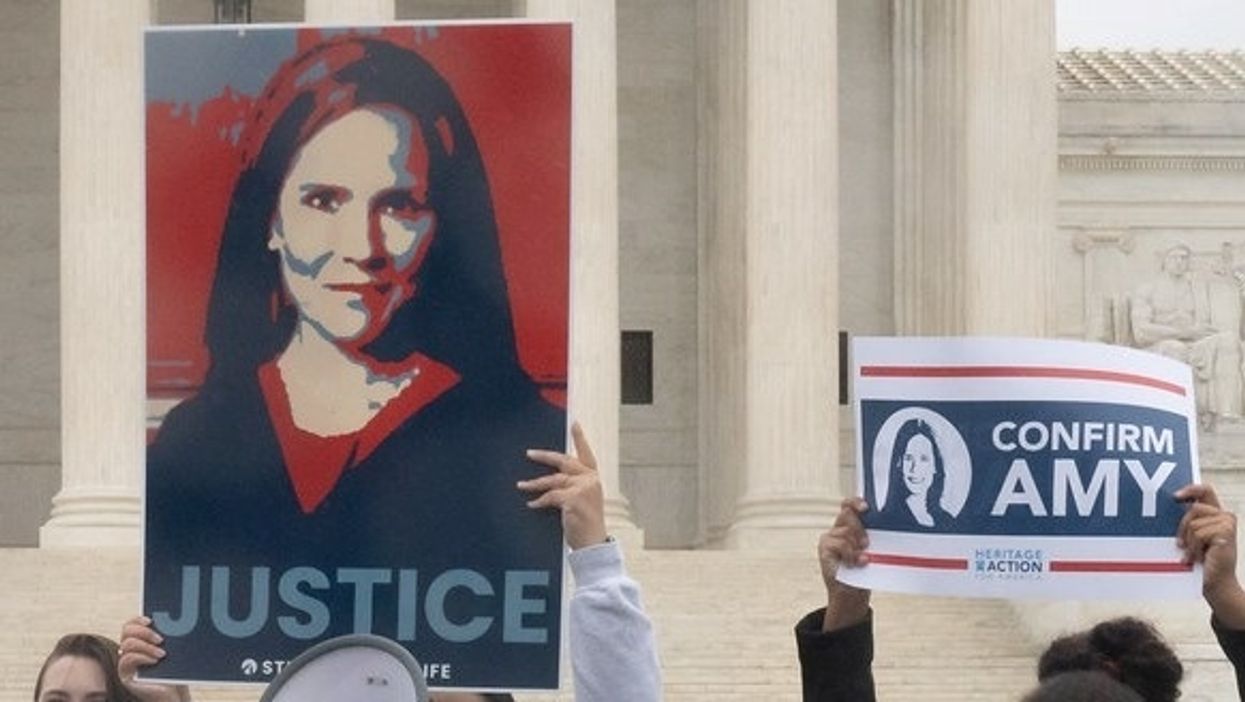What Judge Barrett Has Been Hiding From The Senate

Senate Democrats are attempting to delay a floor vote on Judge Amy Coney Barrett's Supreme Court confirmation in light of significant disclosures she failed to make to the Senate Judiciary Committee.
CNN reported that Barrett failed to disclose at least seven public talks she gave between 2004 and 2013. These events were listed on the University of Notre Dame's public calendars.
According to CNN, her speaking engagements included a talk to the law-school's anti-abortion organization, a Notre Dame Women's Legal forum event, and a roundtable conversation about the Constitution. She also participated in a panel on religion in the public sphere.
The Senate Judiciary Committee requires nominees to disclose all public talks given throughout the course of the nominee's career.
Despite questions raised by the undisclosed documents, Sen. Lindsey Graham (R-SC), chair of the Senate Judiciary Committee, has set a hasty floor vote on Barrett's confirmation for Oct. 22.
But Sen. Richard Blumenthal (D-CT) moved to delay proceedings Thursday, citing a "rushed process" that resulted in "inadequate scrutiny" given to the nominee.
"I move to delay these proceedings so that we can do our job and ask, again, for all the documents," he said.
The public talks weren't Barrett's only troubling nondisclosure, however.
Last week, it surfaced that Barrett failed to include in her paperwork two other talks given in 2013 to anti-abortion student groups, one for Notre Dame's Right to Life club and one for the law school's Jus Vitae club.
Barrett also failed to disclose to the committee that in 2006, she signed her name to a letter that was part of a two-page spread in a local newspaper.
The ad opposed "abortion on demand" and called for an end to the "barbaric legacy" of Roe v. Wade. It was published on the anniversary of the landmark 1973 Supreme Court case legalizing abortion.
She also did not share with the committee a second letter signed in 2013 when she was a Faculty for Life member at Notre Dame. The letter stated her "full support" for the university's "commitment to the right for life."
Barrett defended her nondisclosures during the course of the hearing, noting that she "produced 1,800 pages of material" and that "all six prior nominees" also had to supplement with additional documents.
"Thirty years is a lot to remember," she said.
Barrett also refused to answer nearly 100 questions during her confirmation hearing, predominantly those posed by Democratic senators.
With less than three years sitting on the bench of the Seventh Circuit, her brief judicial record has gaps that make it difficult to form an accurate picture of her jurisprudence.
Ultimately, with the nomination being rammed through with such haste by the GOP, Barrett's lack of transparency raises questions since there's no time to examine all the unknown variables.
Sen. Patrick Leahy (D-VT) said it's unsettling how many undisclosed materials from Barrett keep trickling in.
"I'm not suggesting that Judge Barrett intentionally failed to disclose all these records in the committee," Leahy said. "But normally we have enough time to then go back and find ones that they did fail to."
He added that it was undoubtedly the "mad rush" to confirm her that has "bogged ... up" the situation.
Published with permission of The American Independent Foundation.
- At Barrett Hearing, Only Republicans Talk About Religion - National ... ›
- Barrett Wouldn't Say That Voter Intimidation Is a Federal Crime ... ›
- WATCH: Barrett Deflects Questions On Roe, Despite Publicly Urging ... ›








